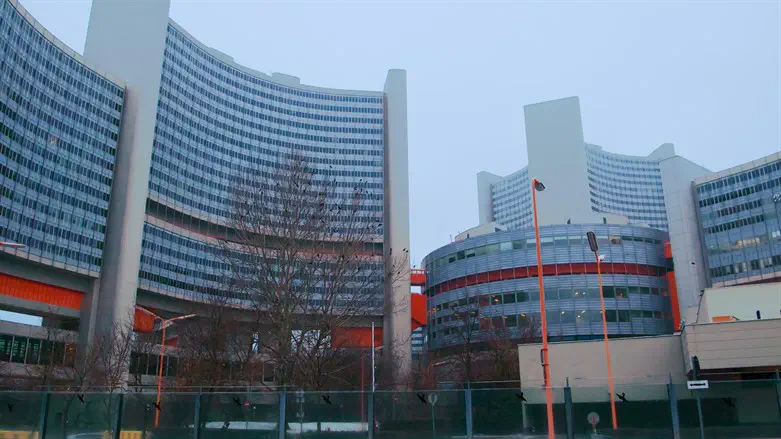
The International Atomic Energy Agency’s (IAEA) 35-nation Board of Governors on Wednesday passed a resolution calling on Iran to step up cooperation with the organization and reverse its recent barring of inspectors despite concerns Tehran would respond with atomic escalation, Reuters reported.
20 countries voted in favor of the resolution and two voted against - Russia and China - with 12 abstentions, diplomats said.
The resolution was submitted on Monday by Britain, France and Germany -- collectively known as the E3.
"The need for the Board to hold Iran accountable to its legal obligations is long overdue. Iran must urgently, fully and unambiguously co-operate with the Agency," the three countries said in a statement to the Board on the resolution.
The IAEA has long sought answers from Iran on uranium traces which were found at undeclared sites. While the number of sites under investigation has been narrowed to two from three, Iran still has yet to give the IAEA satisfactory answers on how the traces got there.
Wednesday’s resolution follows up on a resolution passed 18 months ago that ordered Iran to comply with the IAEA probe.
Since the last resolution, the list of problems the IAEA faces in Iran has grown, and the new text also called on Iran to address several of those issues.
The IAEA released a report at the end of May which found that Iran has further increased its stockpile of uranium enriched to near weapons-grade levels.
The report said that as of May 11, Iran has 142.1 kilograms of uranium enriched up to 60% — an increase of 20.6 kilograms since the last report by the UN watchdog in February. Uranium enriched at 60% purity is just a short, technical step away from weapons-grade levels of 90%.
By the IAEA’s definition, around 42 kilograms of uranium enriched to 60% is the amount at which creating one atomic weapon is theoretically possible — if the material is enriched further, to 90%.
Previously, the IAEA found that, between June and November last year, Iran slowed down the enrichment to 3 kg per month, but that jumped back up to a rate of 9 kg at the end of the year.
The increase came soon after Tehran barred a third of the IAEA's core inspections team, including the most experienced, from taking part in agreed monitoring of the enrichment process.
That move was part of Iran’s scaling back of its compliance with the 2015 nuclear deal it signed with world powers, in response to then-US President Donald Trump’s withdrawal from the deal in 2018.

